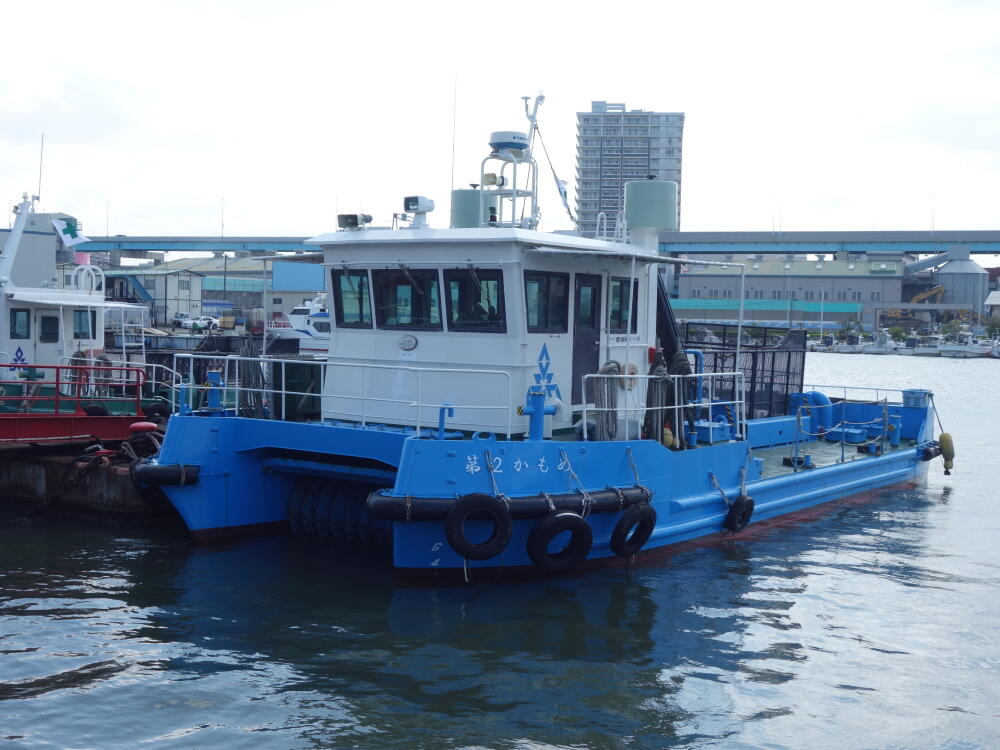Toyota Tsusho Corporation (“Toyota Tsusho”) announced today that it has been awarded a contract for work in a trial for the usage of biodiesel fuel (“biofuel”) in a city-owned vessel (“marine clean-up vessel”)*1 operated by Fukuoka City, and has now begun supplying the biofuel to the vessel.
The purpose of the trial is to investigate any impact of using biofuel on ships for the reduction of CO2 emissions from ships in Hakata Port, where a carbon neutral port*2 is being created to promote decarbonization.
The first supply of biofuel took place on October 12 using ship-to-ship bunkering*3 to the vessel for this trial, the marine clean-up vessel “Kamome No. 2” owned by Fukuoka City. Multiple supplies are planned during the trial period, which will continue until March 2024.
Toyota Tsusho, in cooperation with Daiseki Eco. Solution Co., Ltd., is continuing to procure waste cooking oil collected from the employee cafeterias and other facilities of the Toyota Group and Toyota Tsusho Group companies, which is then refined as part of the raw materials and blended with marine gas oil to produce the biofuel.
This will be the first time for Toyota Tsusho to supply biofuel to marine gas oil ships. Based on the knowledge gained through this trial, Toyota Tsusho will promote the use of biofuel for marine gas oil ships, in addition to its use for fuel oil ships supplied to date.
Through this trial, and in collaboration and cooperation with the local community, Toyota Tsusho is working to reduce CO2 emissions toward the creation of Hakata Port as a carbon neutral port, and will also continue to contribute toward the transition to a decarbonized society by promoting initiatives toward carbon neutrality through the industrial life cycle.

Marine clean-up vessel to be used in trial (Kamome No. 2)
*1 Marine clean-up vessel
A vessel that collects tree branches, trash and other debris floating on the sea, using specialized collection equipment, in order to protect the water area environment and ensure the safe navigation of ships.
*2 Carbon neutral ports
Ports being promoted by the Ministry of Land, Infrastructure, Transport and Tourism to enhance port functions with consideration for decarbonization and develop the environment for receiving hydrogen, etc. The aim is to strengthen the competiveness of industries and ports in Japan and contribute to the realization of a decarbonized society under the Japanese government’s target of “Carbon Neutrality by 2050.”
*3 Ship-to-ship bunkering
A method of fueling a ship moored at a quay or pier and a ship alongside by a fuel supply ship sideways
<Our Efforts So Far> (FY2023)
– August 22, 2023: Toyota Tsusho Supplies Biofuel to Bulk Carrier at the Port of Kobe
(https://www.toyota-tsusho.com/english/press/detail/230822_006295.html)
– May 10, 2023: Toyota Tsusho Launches Japan’s First Continuous Supply of Biofuel for Ships on a Commercial Basis
(https://www.toyota-tsusho.com/english/press/detail/230510_006235.html)
The information in this release is current as of the date of announcement.
Please note that information may change after the date of announcement. Thank you in advance for your understanding.
